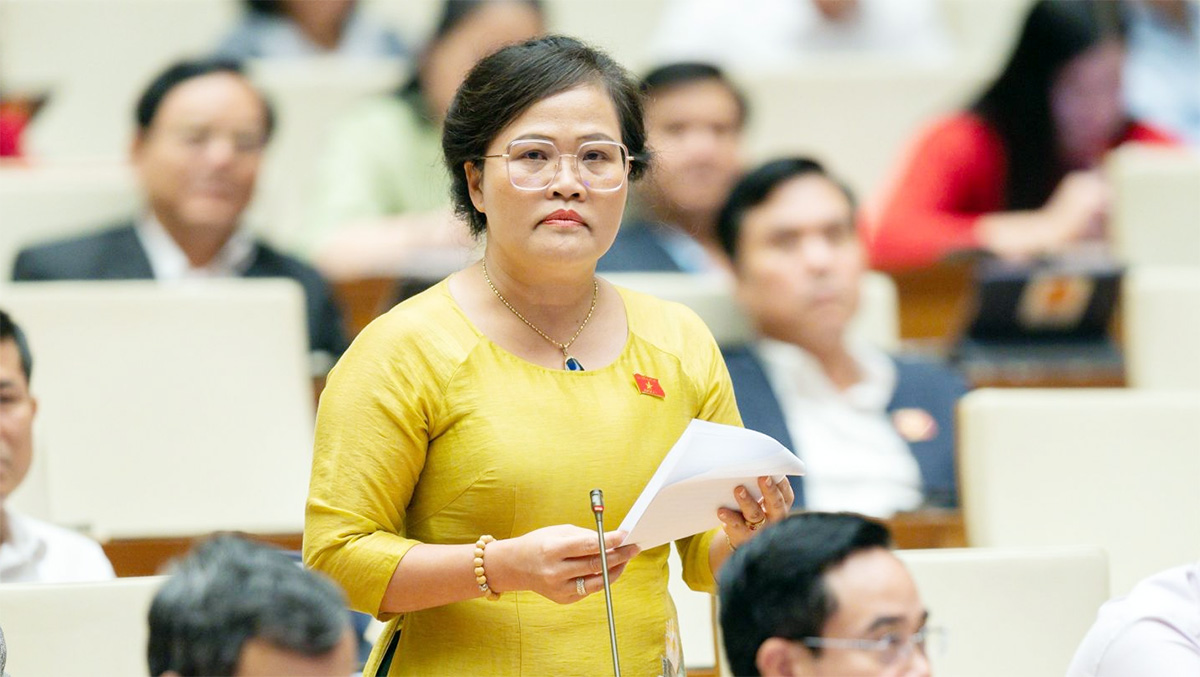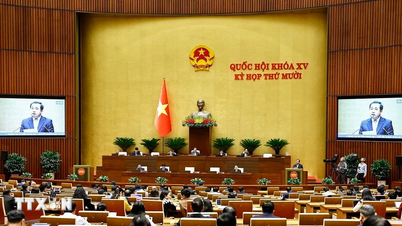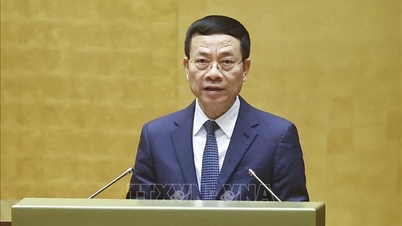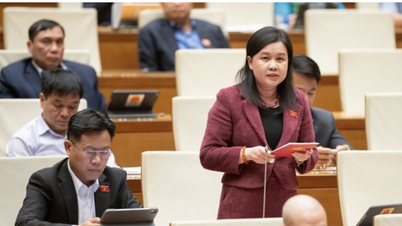The National Assembly has passed a Resolution on the State Budget Estimate for 2024. The Resolution states that, from July 1, 2024, a comprehensive reform of the salary policy will be implemented in accordance with Resolution No. 27 dated May 21, 2018, of the Seventh Plenum of the Central Committee of the 12th Party Congress.
Focusing on the reform of public sector salary policies, and how salaries can truly be the primary source of income, ensuring a decent standard of living for those receiving them, Nguoi Dua Tin (NDT) had an interview with National Assembly Deputy Nguyen Thi Suu - Deputy Head of the Thua Thien Hue National Assembly Delegation.
Interviewer: Madam delegate, could you please give your assessment of the significance of the National Assembly's approval of the salary reform policy effective from July 1, 2024?
National Assembly Deputy Nguyen Thi Suu: It must be affirmed that the salary reform period from July 1, 2024, is a milestone that will have a positive impact on civil servants, public employees, and those receiving salaries from the State budget. This is something everyone has been waiting for.
Interviewer: In your opinion, what issues should be addressed when reforming public sector wage policies?
National Assembly Deputy Nguyen Thi Suu: In the public sector, for civil servants, public employees, and workers who purely receive salaries from the state budget, I believe there needs to be more appropriate consideration and adjustment in different directions, tailored to each group.
There are high-level work groups, and strategies encourage serious investment of intellectual capital and time. Simultaneously, salary increases for specialized groups also need to be different.
In particular, every field needs experts and talented individuals. Therefore, it is necessary to assess the impact of salary policy reforms on talented individuals, experts, and high-quality human resources in all fields. After all, they are the most reliable advisors in their respective areas of expertise.

National Assembly Deputy Nguyen Thi Suu.
In particular, it is essential to thoroughly understand Resolution 27, which states that wage policy must be considered a particularly important part of the socio-economic policy system.
Investor: As the representative analyzed, is paying salaries correctly considered an investment in human resource development?
National Assembly Deputy Nguyen Thi Suu: That's right, because human resources are a truly exceptional resource. Therefore, reforming wage policies must adhere to the principle of distribution according to labor and the objective laws of the market economy, and use increased labor productivity and work efficiency as the basis for wage increases. Because increased labor productivity contributes to economic growth.
Increased labor productivity is measured through output, through labor efficiency, and through the products created for life.
Investor: The issue of salary policy reform affects those receiving salaries from the state budget. Therefore, ensuring fairness for all beneficiaries and fairness across geographical regions is a matter of great concern. According to the delegate, what should we do to harmonize this?

It is essential to ensure a minimum standard of living for every civil servant and public employee when reforming the salary system.
National Assembly Deputy Nguyen Thi Suu: To ensure that salary reform policies are fair, transparent, and just in all regions of the country within the public sector, it is necessary to analyze different groups of people. In addition, I believe we need to consider providing balanced support from the State budget to remote and disadvantaged areas, creating incentives for localities to balance their budgets, generate sufficient revenue to cover expenses, and achieve comprehensive development, reducing the burden on the State budget so that the State budget can be used for more macro-level issues.
Fairness is important, but it must be proportionate, ensuring a minimum standard of living for each civil servant and public employee. At the same time, it must ensure the livelihood of their families, as some civil servants and public employees are the primary breadwinners. Particular attention should be paid to low-income civil servants and public employees, with additional consideration needed to create incentives for the production of high-quality human resources.
Interviewer: What are your expectations regarding the comprehensive reform of the wage policy starting July 1, 2024?
National Assembly Deputy Nguyen Thi Suu: From July 1, 2024, a comprehensive reform of the new salary policy will be implemented. I expect that officials, civil servants, public employees, and workers receiving salaries in the public sector will be satisfied with this salary reform policy. This is also a major breakthrough and a political determination of the Party and the State to continuously improve the income and quality of life of workers.
Furthermore, the salaries of village health workers, teachers, and school staff are still insufficient to meet their living expenses. Therefore, I believe this group also needs attention. Only then will the value of salary policy reform be comprehensive, objective, fair, create genuine stability, and provide motivation to perform all assigned tasks well.
Interviewer: In your opinion, what kind of evaluation and monitoring are necessary during the implementation of this wage policy reform?
National Assembly Deputy Nguyen Thi Suu: After the salary reform policy comes into effect, it needs to be implemented uniformly across all agencies in the public sector. At the same time, it is necessary to strengthen inspection, supervision, guidance, and monitoring to ensure the policy truly takes effect.
Investor: Thank you very much, delegates!
According to Resolution No. 104 on the State Budget Estimate for 2024, regarding the implementation of salary policy, the Resolution clearly states: From July 1, 2024, a comprehensive reform of the salary policy will be implemented in accordance with Resolution No. 27-NQ/TW dated May 21, 2018, of the Seventh Plenum of the Central Committee of the 12th Party Congress (Funding for salary reform will be ensured from the accumulated salary reform funds of the central budget, local budgets, and a portion allocated in the balanced state budget expenditure estimate); adjustments will be made to pensions, social insurance benefits, monthly allowances, preferential allowances for meritorious individuals, and some social security policies currently linked to the basic salary.
For central government agencies and administrative units implementing a special financial and income management mechanism: From January 1, 2024 to June 30, 2024: The monthly salary and additional income calculated based on the base salary of VND 1.8 million/month under the special mechanism must not exceed the salary and additional income received in December 2023 (excluding the salary and additional income resulting from adjustments to salary coefficients for grades and ranks when upgrading in 2024). If, according to the above principle, the salary and additional income in 2024 under the special mechanism is lower than the general salary level, only the general salary regime will be applied to ensure the rights of employees ...
Source














































































































Comment (0)